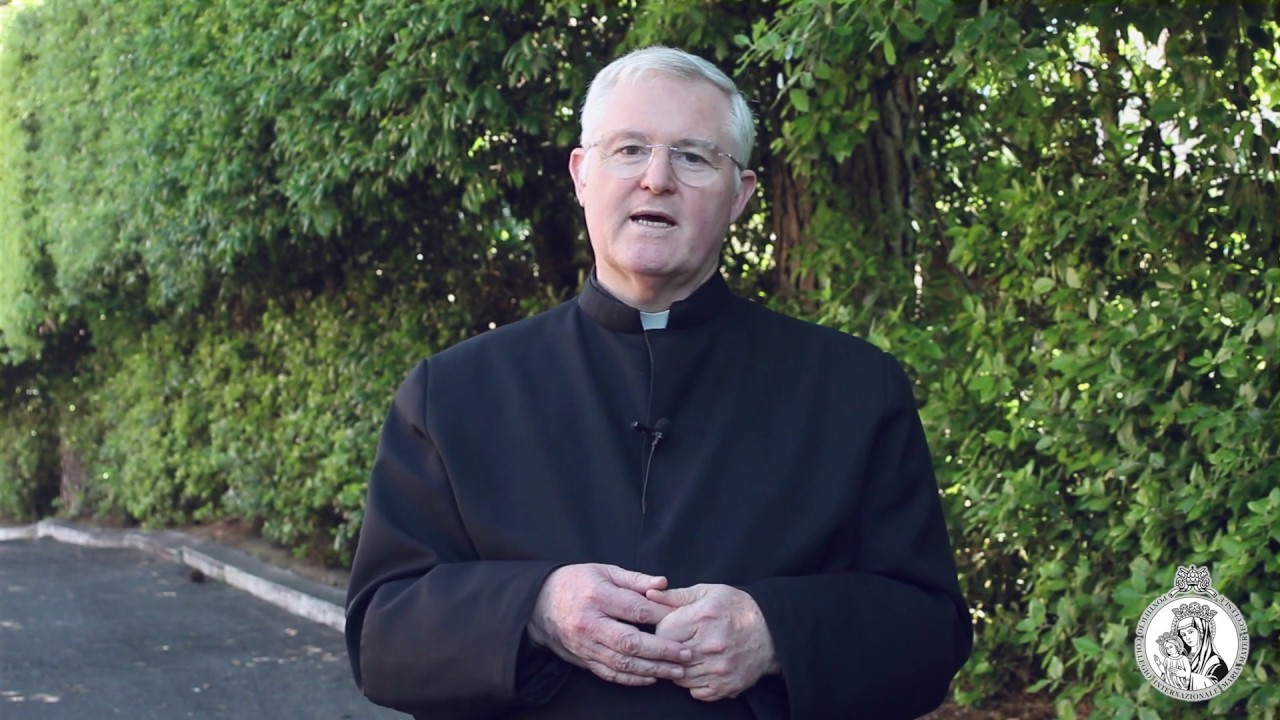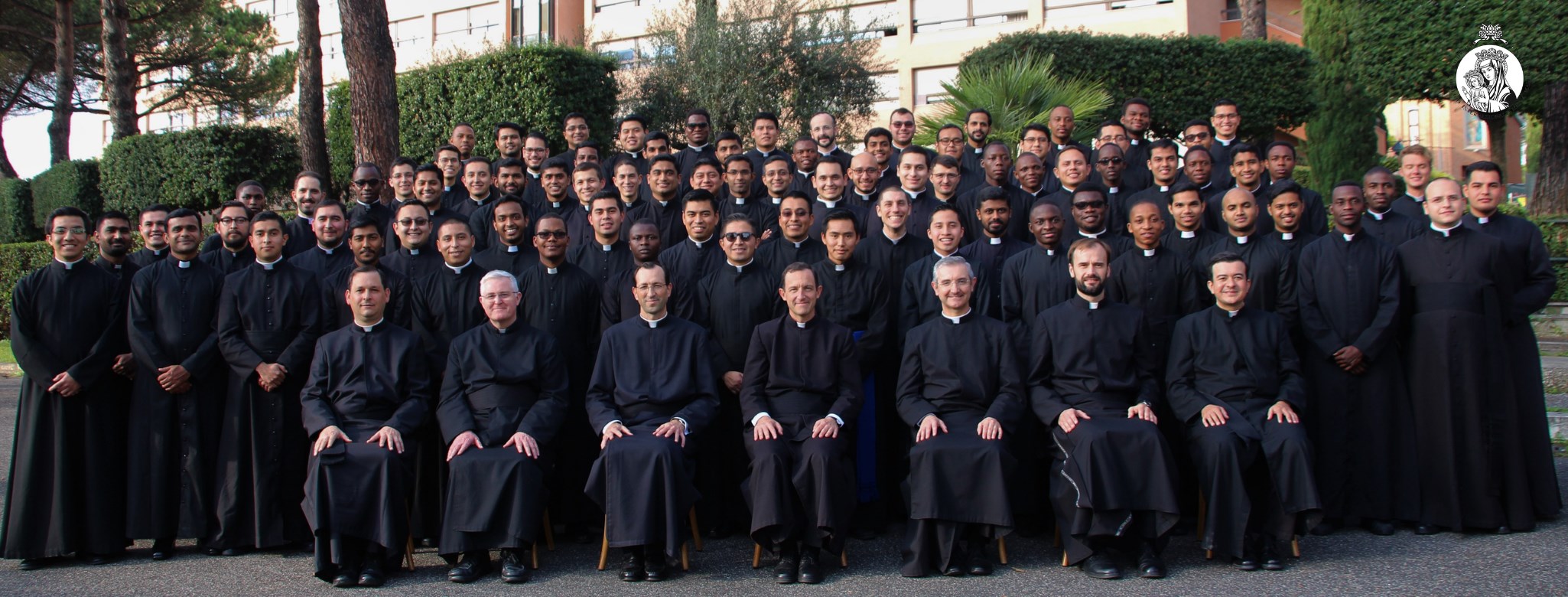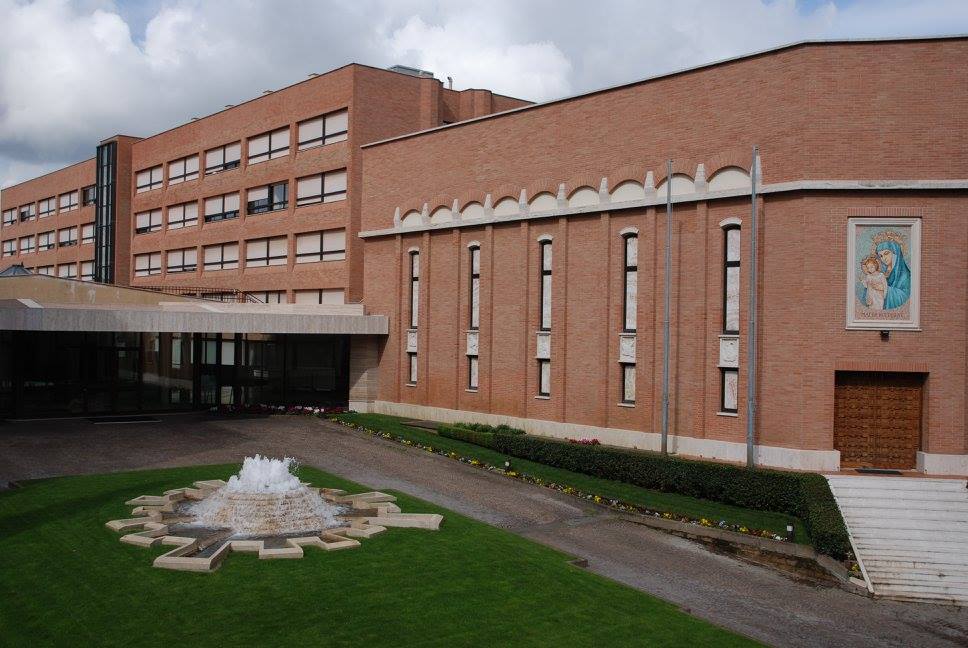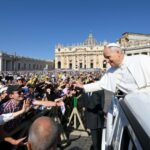Father Edward has had the opportunity to accompany this apostolic work from its beginnings and shares what this work has been and continues to be over the years.
My first experience of the Pontifical International College Maria Mater Ecclesiae (PCIMME) took place a few months after my ordination to the priesthood, when I concelebrated at the inaugural Mass welcoming the first 12 seminarians in August 1991. During that first year, the seminarians resided at the General Directorate of the Legion of Christ, so I maintained daily contact with them until their transfer, first to Castel di Guido and later to the current college in 1999.
After the first year, my contact with the college was mainly through occasional lectures and as a professor at the Pontifical Athenaeum Regina Apostolorum, although after 1999, some Asian seminarians needing an English-speaking spiritual director requested my help. Finally, in 2003, my superiors assigned me to the PCIMME as Spiritual Director while I continued my teaching responsibilities. Since then, the Mater Ecclesiae has been a central part of my priestly ministry.
It is not easy to summarize the richness of experiences and transformations that the College has undergone over thirty years. However, I believe we could categorize them into three broad areas in which there has been constant learning and adaptation by both the seminarians and the formation team. These areas would be spiritual formation, intellectual formation, and increasing internationalization.
A characteristic of Mater Ecclesiae is the combination of healthy discipline and a strong emphasis on the spiritual dimension. For example, many of our alumni comment on how much they benefited from daily adoration of the Blessed Sacrament to develop their personal relationship with Christ. However, the spiritual dimension is an area that has constantly evolved with experience. Although the formators were always aware that they were forming diocesan priests and not religious, some of the religious and disciplinary practices from the early years were more typical of religious life. As the formation team grew in experience of diocesan realities, the practices of many other seminaries, and the desires of many bishops, spiritual life at PCIMME became more specifically aligned with the formation of diocesan clergy. This led to a growing emphasis on the Liturgy of the Hours, the formation of solid habits of mental prayer, and more space for different spiritualities. In many ways, our task has become guiding each candidate in seeking the elements of spiritual life that will best support him personally in his priestly ministry.
Many of our alumni comment on how much they benefited from daily adoration of the Blessed Sacrament to develop their personal relationship with Christ.
In the early years, PCIMME saw its mission mainly as the formation of future seminary formators, and indeed, many of its alumni have served in this role. It also offered almost complete philosophical and theological formation in Rome. Over time, experience and dialogue with bishops clarified two elements that prompted a shift in emphasis. First, that the Roman experience was very beneficial for candidates already familiar with seminary life, well known by their diocesan formators, and with a firm and well-established vocation. Second, that the needs of dioceses extended beyond priestly formation areas. This led the college to change its statutes to mainly accept students for theological studies and see its mission as completing the work already begun in their home dioceses by offering solid spiritual, pastoral, human, and intellectual formation, as well as the necessary cultural and linguistic adaptation to enable students to maximize their future studies in Rome at the licentiate level. It is up to the bishop, according to the needs of the dioceses, to decide what advanced studies the student should undertake and whether they should begin after theology or after some years of priestly experience.
Finally, the area of increasing internationalization of PCIMME was mainly founded in response to Saint John Paul II’s desire to help form educators in Latin America. This remains a very important part of its mission, as most of the Legion of Christ’s apostolate is in Mexico and Central and South America. However, over the years, seminarians from other continents—Europe, Asia, and recently, a growing contingent from Africa—have also joined. Each new reality presents an opportunity to serve the needs of the Church, which is our fundamental mission, but also new challenges and learning experiences.
For me personally, the influx of seminarians from India, many of whom are from the Syro-Malabar Church, required patient study and listening to enter a different culture and help guide the seminarians as best I could. The most recent growth of students from various regions of Africa has also revealed the wide variety of cultures within this great continent, which Europeans tend to paint with a broad brush.
Each new reality presents an opportunity to serve the needs of the Church, which is our fundamental mission, but also new challenges and learning experiences.
The internationalization of PCIMME is an ongoing challenge for the formation team, and we are learning every day. We have also tested various ways for each group to share their spiritual and cultural richness with their peers and participate in an incredibly enriching experience of the Universal Church. From these experiences, for me—and I believe for most of our students and alumni—their idea of the Catholic Church has changed forever, and when they hear about the Church in India, South Sudan, Brazil, or Mexico, it will not be an abstract idea but a name, a face, a companion with whom I shared many wonderful experiences on the path to priesthood.
I am very happy to have been part of this story and hope to continue being part of it as long as God wills. One of the sacrifices of our formation team members is that we rarely participate in the ordination of our students and observe them as they carry out their ministry. However, with the certainty of being part of the Mystical Body of Christ, we know we have sown our seed worldwide and that the seed bears fruit.












